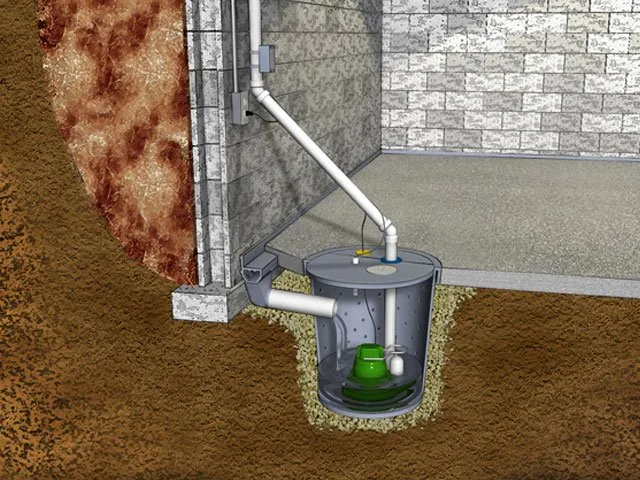Cutting-Edge Water Filtration Systems: Promoting Healthier Living Atmospheres
Wiki Article
Comprehending the Key Elements of Effective Water Purification Systems

Value of Water Filtering Systems
Water filtration systems play an important duty in ensuring access to safe and clean drinking water by properly eliminating contaminants and impurities. These systems are important in resolving the expanding worries over water quality and the possible health dangers connected with taking in polluted water. By using various filtering devices such as reverse osmosis, activated carbon, and UV sanitation, water filtering systems can efficiently get rid of damaging substances like microorganisms, infections, hefty metals, and chemicals from the water.Additionally, water purification systems help to improve the preference and smell of water by removing chlorine, debris, and various other contaminants that can affect its quality. Water Filtration Systems. This enhancement in water quality not just makes it extra palatable but additionally motivates people to drink an adequate amount of water daily, promoting better hydration and general health
Kinds Of Filtration Elements

Physical filters are made to physically strain out impurities from the water. These filters can be made of materials like ceramic, carbon, or perhaps sand, and they function by capturing particles larger than the filter's pores as water passes via.
Chemical filters make use of various chemical procedures to remove impurities from the water. Instances include turned on carbon filters, which adsorb contaminations, and reverse osmosis membrane layers, which utilize stress to different pollutants from the water.
Biological filters use living organisms like algae or bacteria to break down raw material and toxins in the water. These filters are usually utilized in wastewater treatment plants or all-natural water purification systems.
Understanding the different kinds of filtration components is essential for selecting the most suitable water filtering system for certain purification needs.
Feature of Sediment Filters
Sediment filters play an essential duty in water filtering systems by successfully catching solid particles suspended in the water. These filters are commonly the initial line of defense in a purification system, removing bigger bits such as sand, silt, dirt, and rust prior to the water relocates with finer filtration phases. By trapping these debris, the filters prevent them from reaching downstream elements, hence prolonging the life-span and performance of the entire system.Disregarding this upkeep can lead to obstructing, decreased water circulation, and endangered filtering efficiency. Generally, debris filters are vital components that contribute dramatically to the effectiveness of water filtering systems.
Role of Activated Carbon Filters
Playing an important function in water filtering systems, triggered carbon filters contribute in removing pollutants and contaminants from the water system. These filters are made to adsorb and catch a large range of toxins, consisting of chlorine, volatile organic compounds (VOCs), pesticides, and herbicides. The activated carbon material has a huge surface area, enabling the effective capturing of pollutants through a procedure called adsorption. As water passes through the filter, the triggered carbon holds and brings in onto the impurities, making sure that the water that comes out on the other side is cleaner and safer for intake.Activated carbon filters go to website are extremely efficient at boosting the taste and odor of water by reducing chemicals that can impact its top quality. Due to their flexibility and integrity, triggered carbon filters are a key component in guaranteeing that water is cleansed to the highest possible standards prior to getting to consumers.
Recognizing Reverse Osmosis Equipments
Reverse osmosis systems are sophisticated water filtration systems that utilize find more information an innovative procedure to get rid of pollutants and pollutants from alcohol consumption water. These systems work by applying stress to the water, requiring it via a semi-permeable membrane. This membrane functions as a barrier, permitting just pure water molecules to travel through, while blocking bigger particles such as minerals, chemicals, and other pollutants. Therefore, the water that appears on the other side is considerably cleaner and more secure for intake.One secret benefit of reverse osmosis systems is their ability to remove a variety of contaminants, consisting of hefty metals, liquified bacteria, solids, and infections. This makes them extremely reliable in enhancing the overall top quality and security of drinking water. Additionally, reverse osmosis systems are relatively low-maintenance and can be set up under the sink or in a central filtering system, offering hassle-free access to tidy water throughout the home. Overall, comprehending how reverse osmosis systems function can aid individuals make informed choices about their water filtering needs.
Final Thought
In conclusion, efficient water filtration systems are crucial for guaranteeing secure and clean alcohol consumption water. By recognizing the function and duty of each element, individuals can make educated choices when selecting a water purification system.Water filtration systems play a crucial duty in making sure access to clean straight from the source and risk-free alcohol consumption water by properly eliminating impurities and contaminants. By utilizing different filtering systems such as reverse osmosis, turned on carbon, and UV sanitation, water purification systems can efficiently get rid of harmful compounds like microorganisms, infections, hefty steels, and chemicals from the water supply.
Debris filters play an important duty in water filtration systems by effectively recording solid bits suspended in the water (Water Filtration Systems).Playing a critical role in water purification systems, turned on carbon filters are instrumental in eliminating contaminations and pollutants from the water supply.Reverse osmosis systems are advanced water filtration systems that use an innovative process to get rid of contaminants and contaminations from alcohol consumption water
Report this wiki page